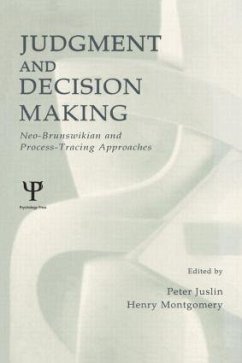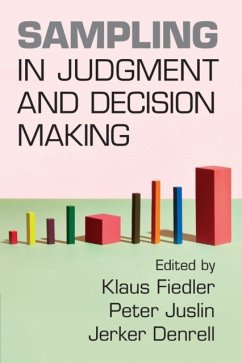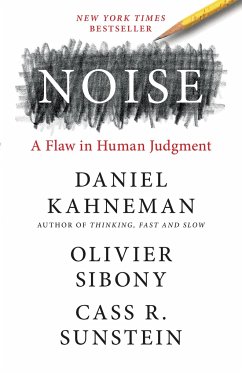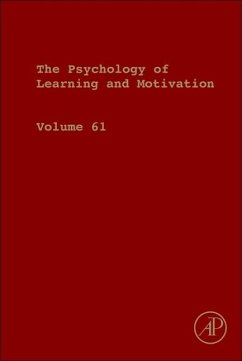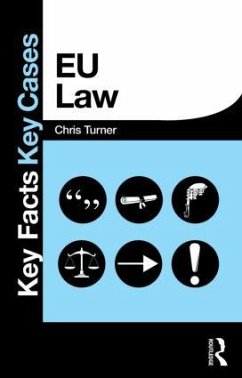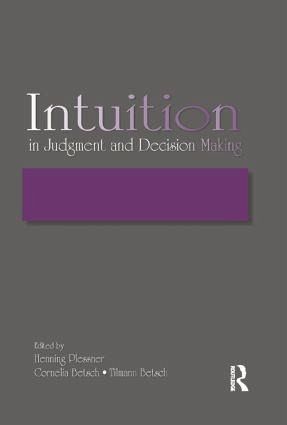
Intuition in Judgment and Decision Making
Versandkostenfrei!
Versandfertig in 1-2 Wochen
71,99 €
inkl. MwSt.

PAYBACK Punkte
36 °P sammeln!
The central goal of this volume is to bring the learning perspective into the discussion of intuition in judgment and decision making. The book gathers recent work on intuitive decision making that goes beyond the current dominant heuristic processing perspective. However, that does not mean that the book will strictly oppose this perspective. The unique perspective of this book will help to tie together these different conceptualizations of intuition and develop an integrative approach to the psychological understanding of intuition in judgment and decision making. Accordingly, some of the ch...
The central goal of this volume is to bring the learning perspective into the discussion of intuition in judgment and decision making. The book gathers recent work on intuitive decision making that goes beyond the current dominant heuristic processing perspective. However, that does not mean that the book will strictly oppose this perspective. The unique perspective of this book will help to tie together these different conceptualizations of intuition and develop an integrative approach to the psychological understanding of intuition in judgment and decision making. Accordingly, some of the chapters reflect prior research from the heuristic processing perspective in the new light of the learning perspective. This book provides a representative overview of what we currently know about intuition in judgment and decision making. The authors provide latest theoretical developments, integrative frameworks and state-of-the-art reviews of research in the laboratory and in the field. Moreover, some chapters deal with applied topics. Intuition in Judgment and Decision Making aims not only at the interest of students and researchers of psychology, but also at scholars from neighboring social and behavioral sciences such as economy, sociology, political sciences, and neurosciences.





